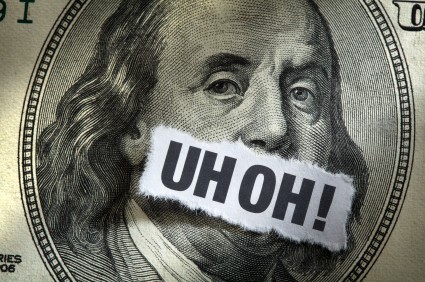
THE TIME of preparing or filing the tax returns is not the time in which the owner(s) of a business should conduct the review of their practices of accounting. Accounting experts state that the owners of the small business, in most cases, make very simple mistakes of accounting, which at the extreme conditions, may mean the difference between a bad and good fiscal year.
The following are the three most common accounting mistakes that most entrepreneurs make and also those lessons that you can learn from.
1. Treating sales as revenue before the delivery of service or product.
Stuart Reisch, one of the founders of Transform, a company that deals with the making of custom units of storage, learned from this mistake the hard way in 1999 after he unwittingly counted deposits as income within his first year of doing business. New Rochelle, a company based in New York had expenses totaling $1.2 million as compared to the $1.4 million of the total sales. This resulted in something that looked like a profit of $200,000.
However, the $200,000 worth of the products that had been sold were not actually delivered until January of the following year. In consequence, Reisch was forced to make a revision of the financials of the company and he found out that his business had not earned a profit. He decided to temporarily halt the plans for the growth of the business.
We can learn from this that, after making a sale, you should not count it as income until the time when the business has actually delivered the service or product to the customer. High sales which have not yet been delivered to the customer, but which have been posted as revenue for that period, may give a business sense of profitability that is false.
2. Not considering the financial implications of large purchase items such as equipment.
After paying cash for large equipment such as a server or machinery (referred to as capital expenditures), one of the advantages is that you are capable of depreciating the equipment within a certain period of time. Accounting experts advise that spending a large portion of the business’ cash reserves may in various ways put it at risk.
According to Frank Winchester, one of the founding partners of Pacific Crest Group, a financial services and business management firm based in Larkspur, California, most of the owners of businesses do not understand that the making of capital expenditures on the furnishings or equipment depletes the cash reserves within that short term and also has implications in the long term when it comes to the taxation.
ADVICE: When you are making any major purchase such as equipment, it is wise to consider applying for a short term loan if you find out that purchasing in cash will lead to serious depletion of your business reserves.
3. Confusing profits for cash flow.






















